Making these five-minute poached eggs is easy, and you don't need a special poacher.
The result, creamy and delicate, is well worth the slight effort. It's one of my favorite ways to cook eggs!
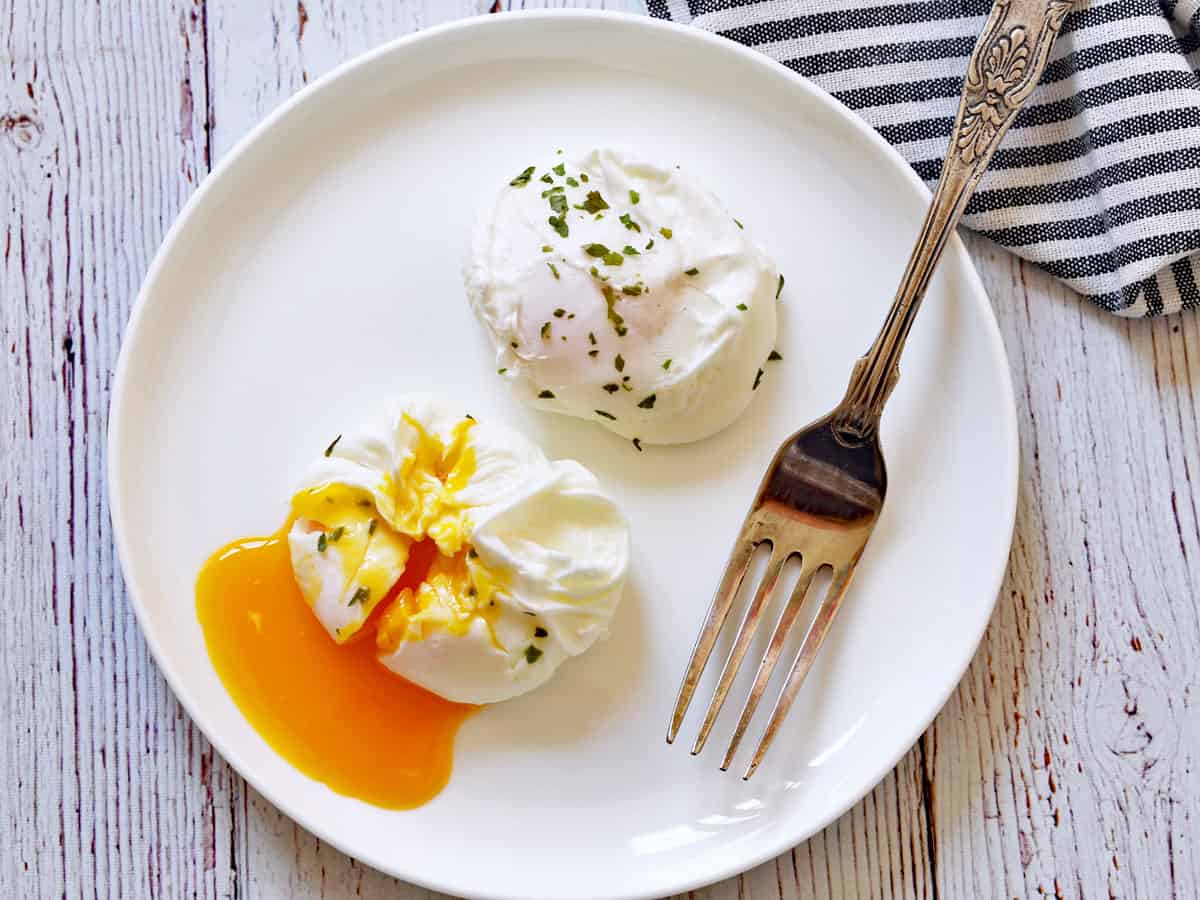
Crispy fried eggs, fluffy scrambled eggs, and soft-boiled eggs are so good. But poaching is a gentle cooking method that results in an especially creamy texture and a delicate flavor.
I love eggs in any way you can make them. But as someone who loves runny yolks, poached eggs are my favorite way to enjoy this delicious and versatile food.
Jump to:
Ingredients
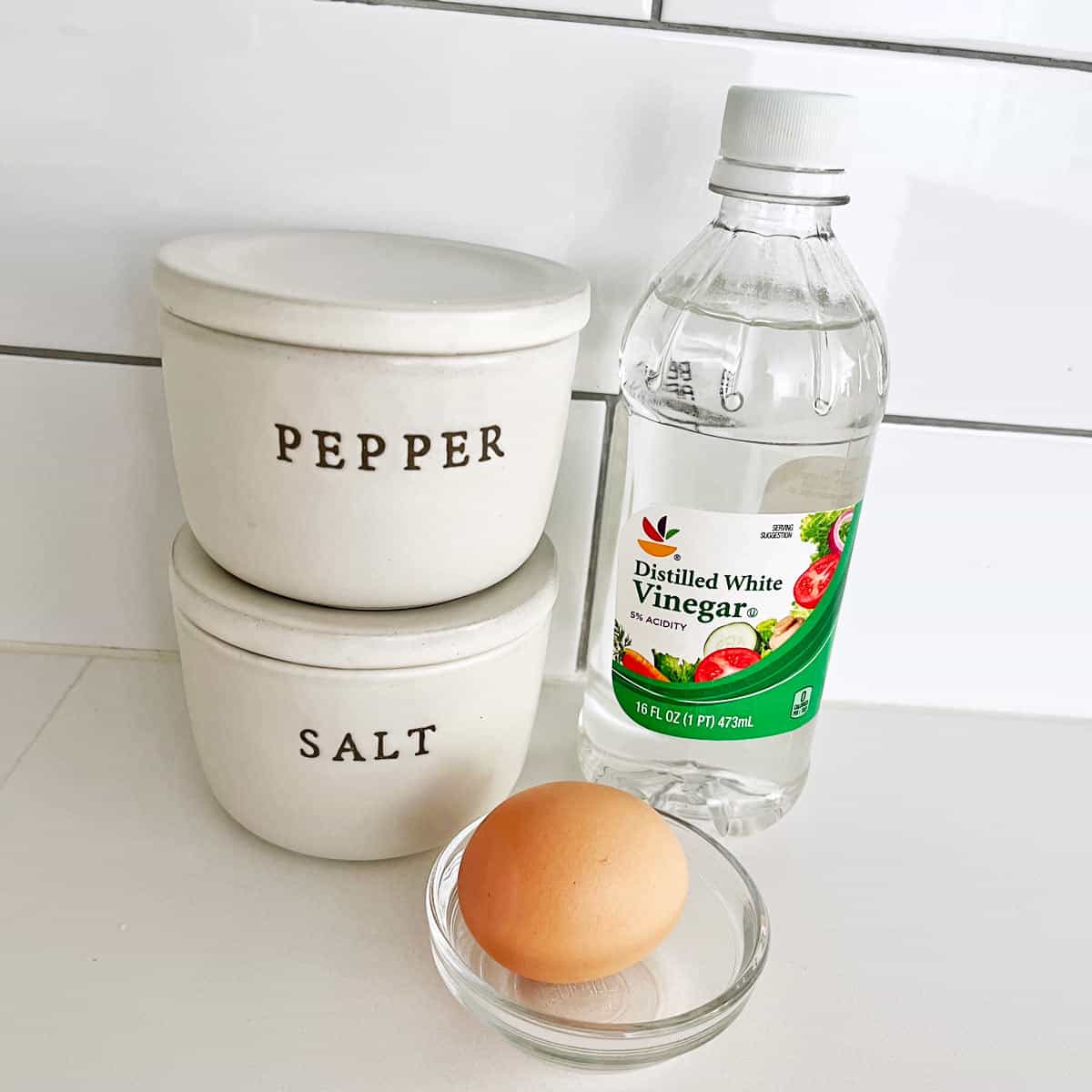
You'll only need four ingredients to make this recipe. The exact measurements are listed in the recipe card below. Here's an overview of what you'll need:
- Vinegar for the water: Any vinegar will work. I use distilled white vinegar.
- Egg: I use large eggs in most of my recipes, including this one.
- Salt and pepper: Used to season the egg.
Variations
The best way to vary this recipe is to use different seasonings for the eggs. If you want to try something other than salt and pepper, you can sprinkle the eggs with garlic powder and/or smoked paprika. You can also season them with hot sauce.
In the photo below, I seasoned the eggs with salt, black pepper, red pepper flakes, and dried parsley:
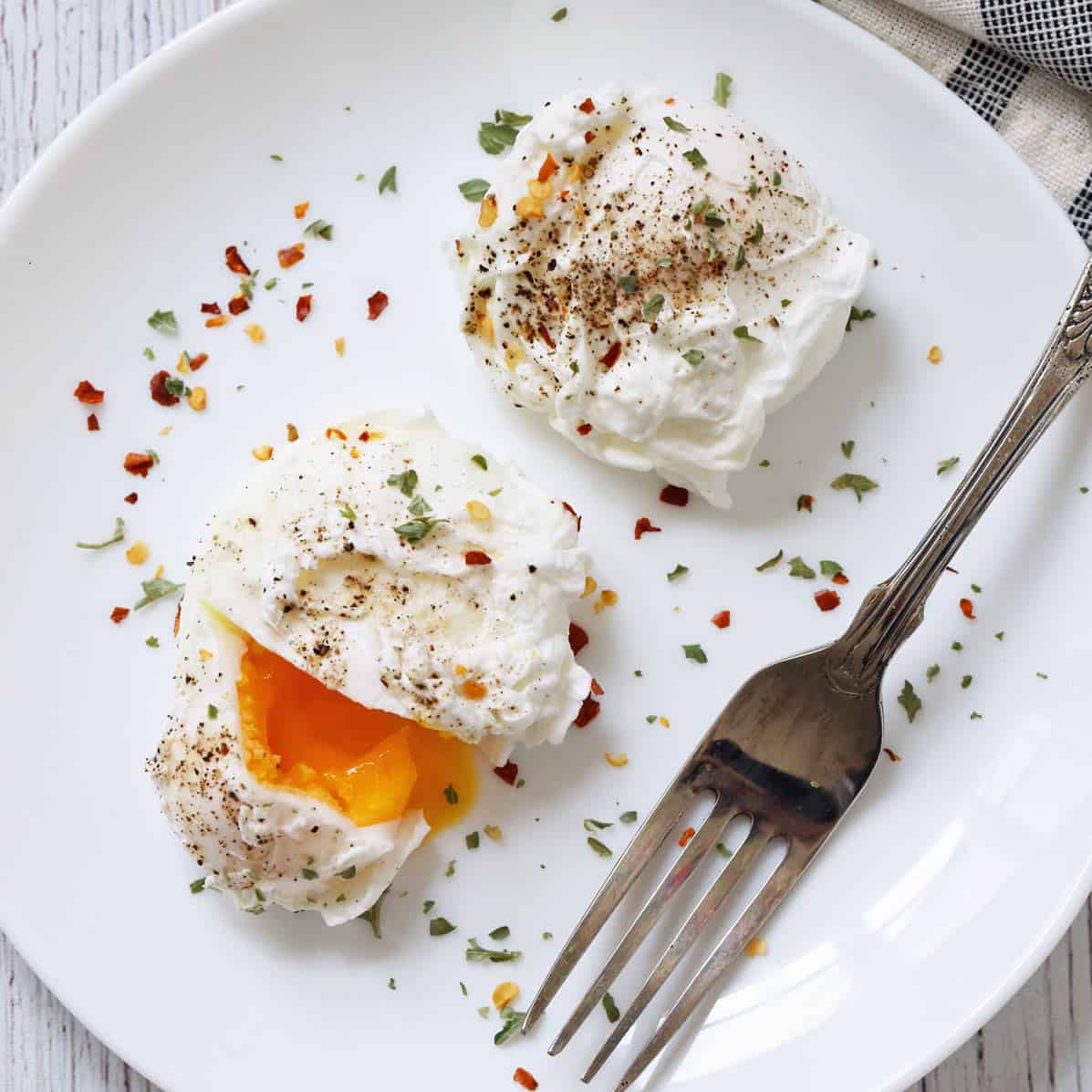
Instructions
You can use an egg poacher for the stovetop or microwave. A stovetop poacher is the best way to poach several eggs at once. But if you don't own a poacher, using a saucepan is entirely doable. It's simply a matter of technique.
The recipe (and video) below will show you how to poach eggs in a saucepan with boiling water, vinegar, and a whisk. The vinegar helps the egg white congeal - that's its only purpose. Don't worry - it doesn't give the eggs a vinegary taste.
The detailed instructions for making this recipe are listed in the recipe card below. Here are the basic steps:
Bring a small pot filled with water to a gentle boil. Break an egg into a small bowl.
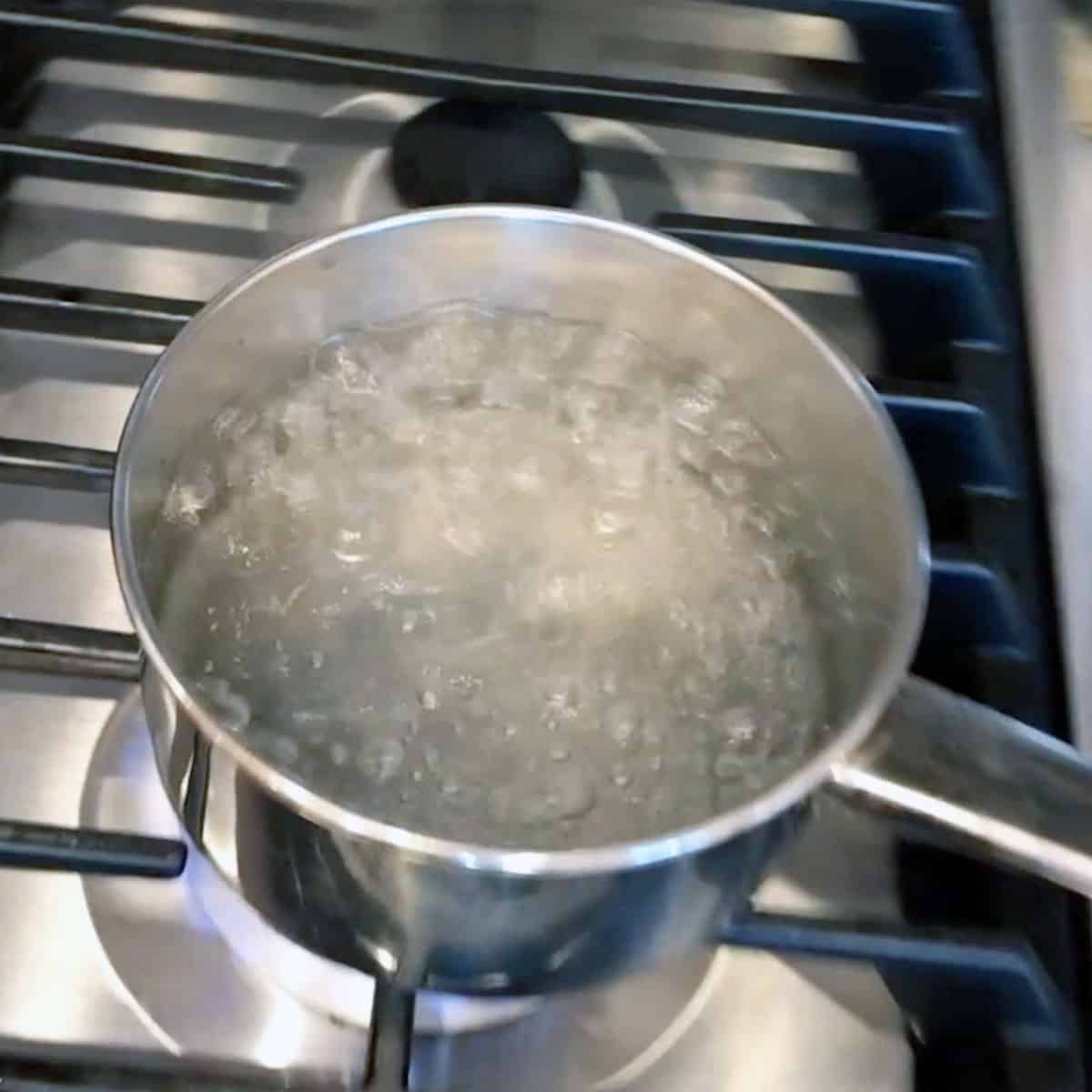
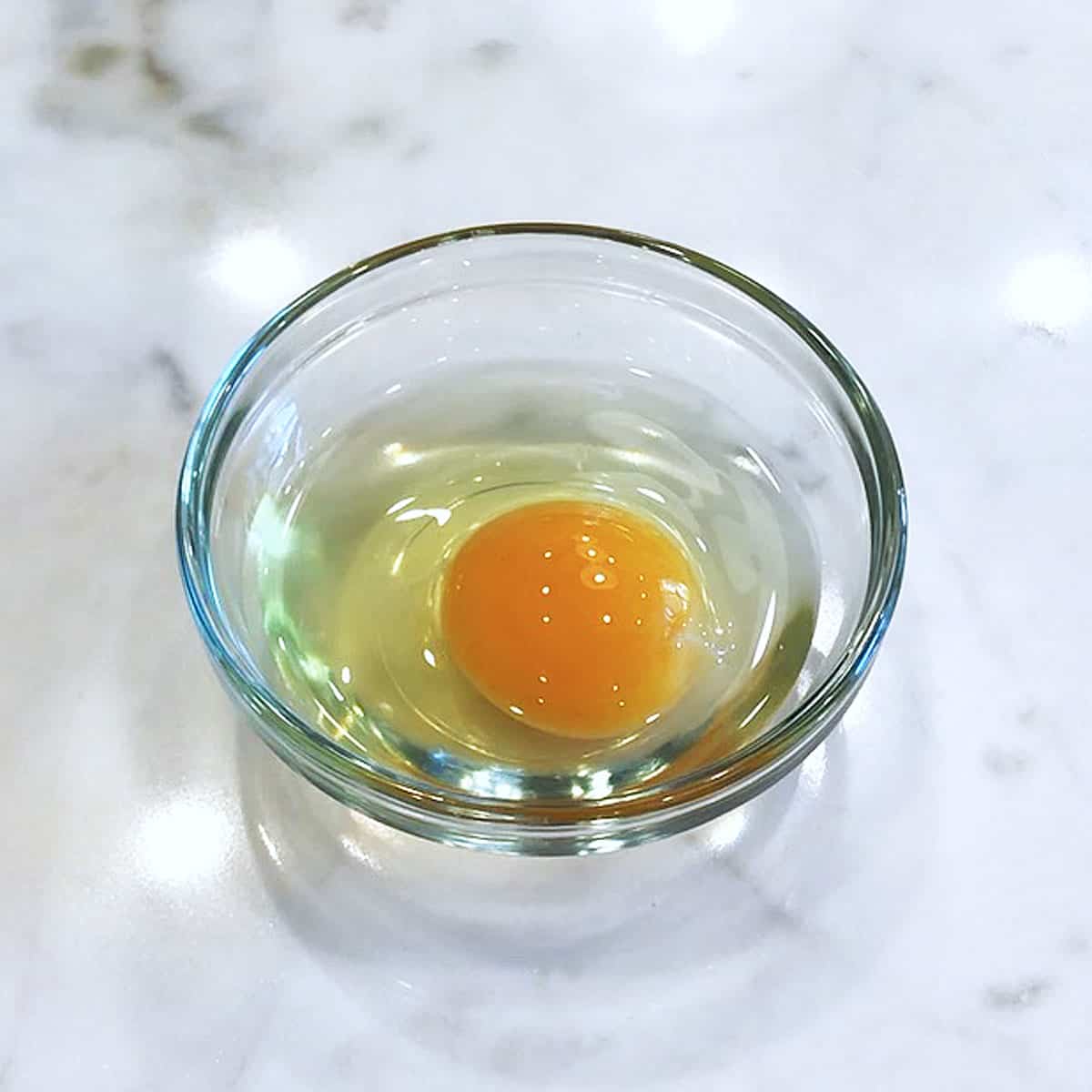
Add vinegar to the boiling water. Vigorously whisk the water, then slide the egg in.
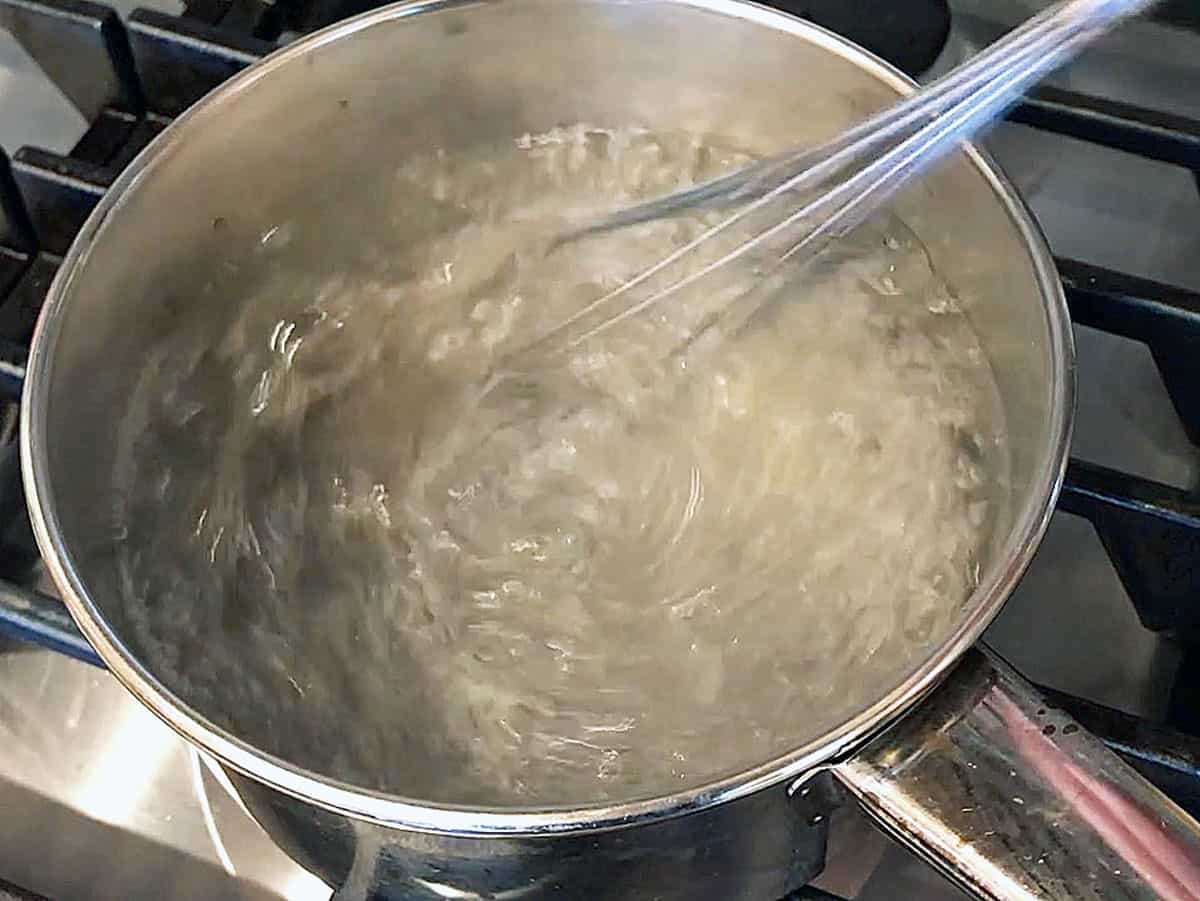
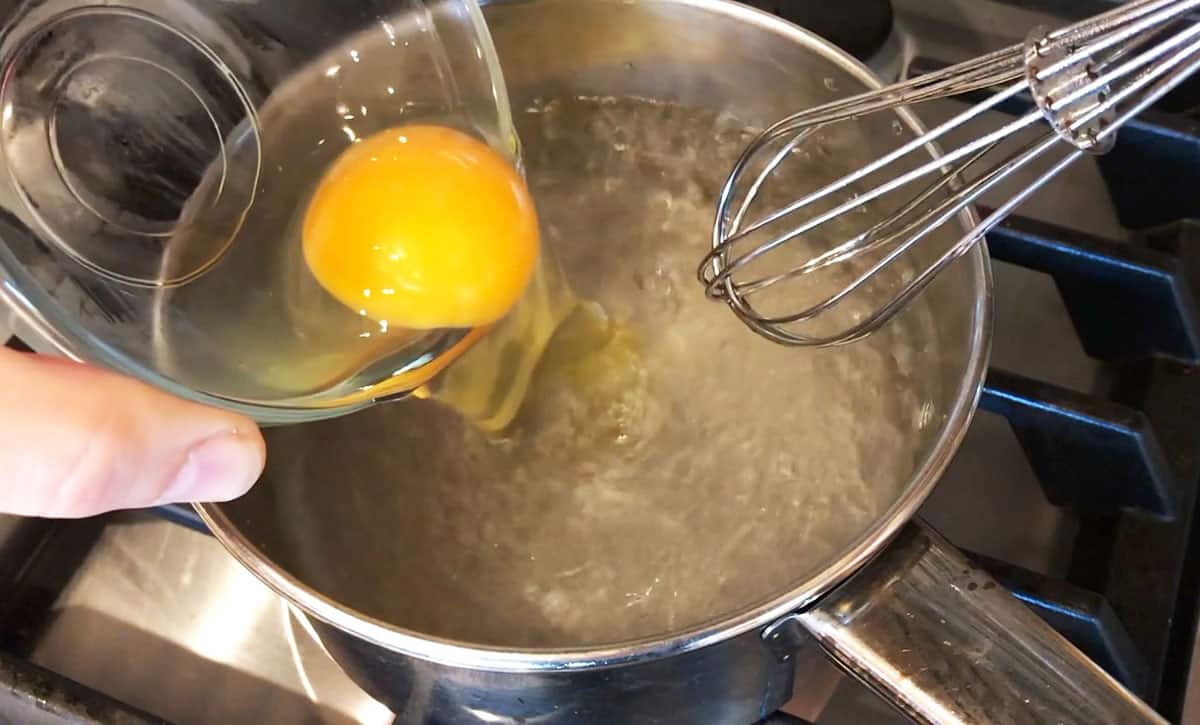
You can gently push the egg white closer to the yolk if it spreads too much:
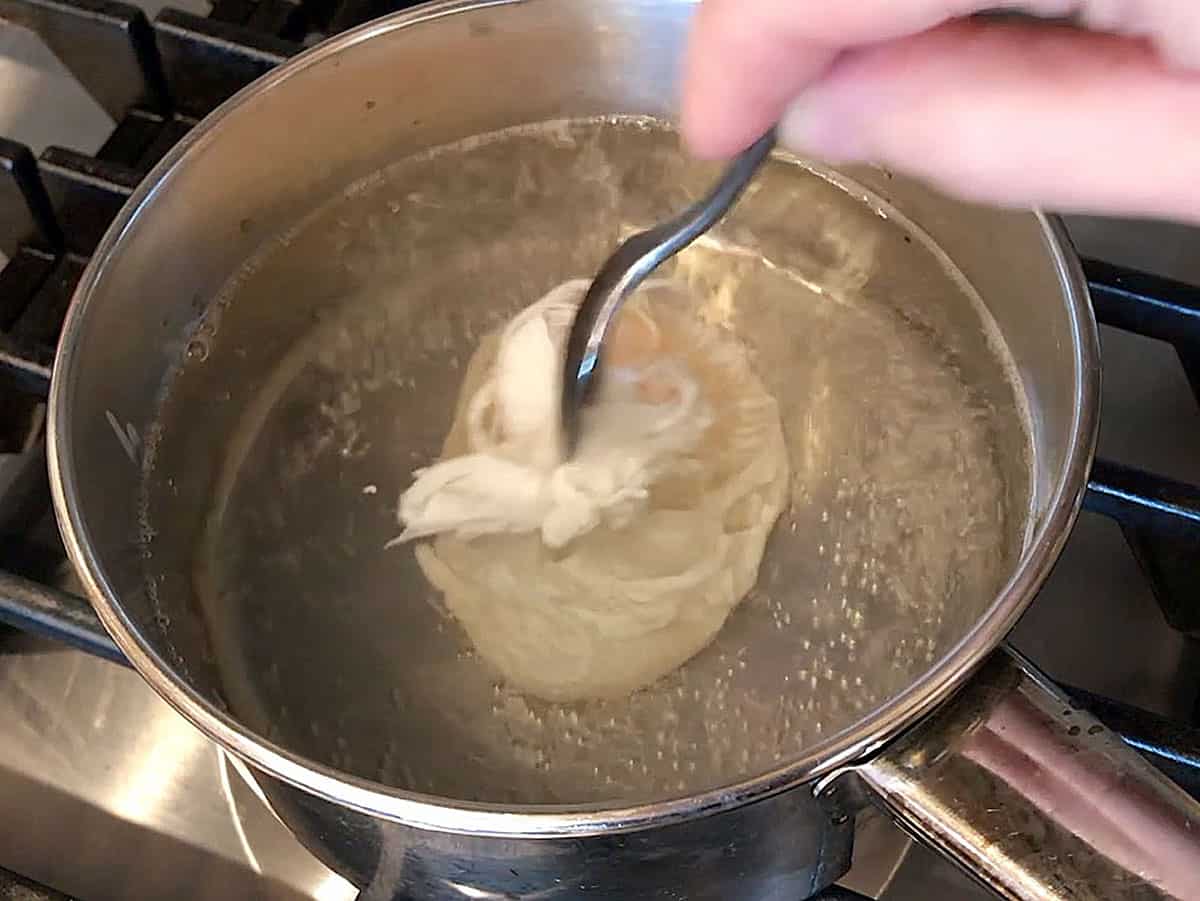
Cover, turn the heat off, and wait for five minutes.
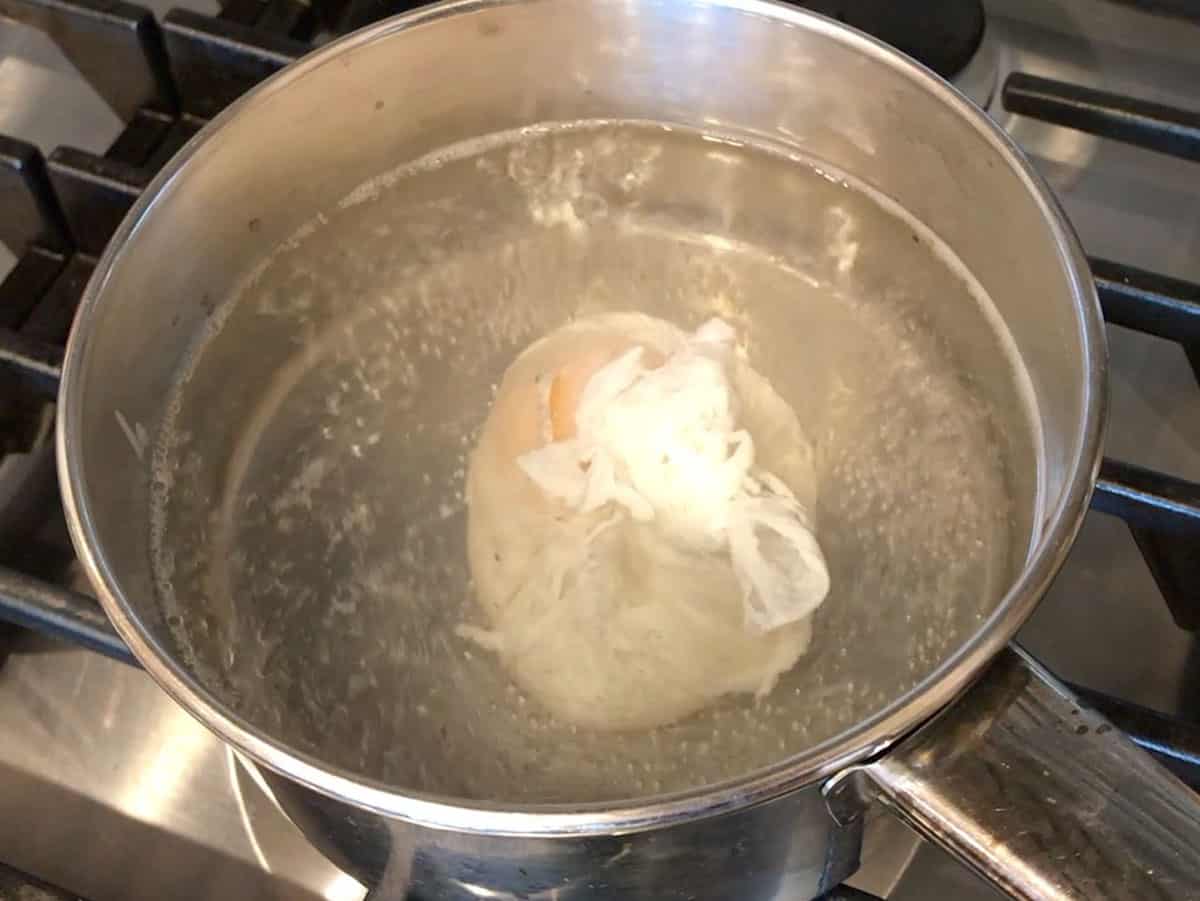
Lift the egg out of the water with a slotted spoon and place it on a paper towel to drain.
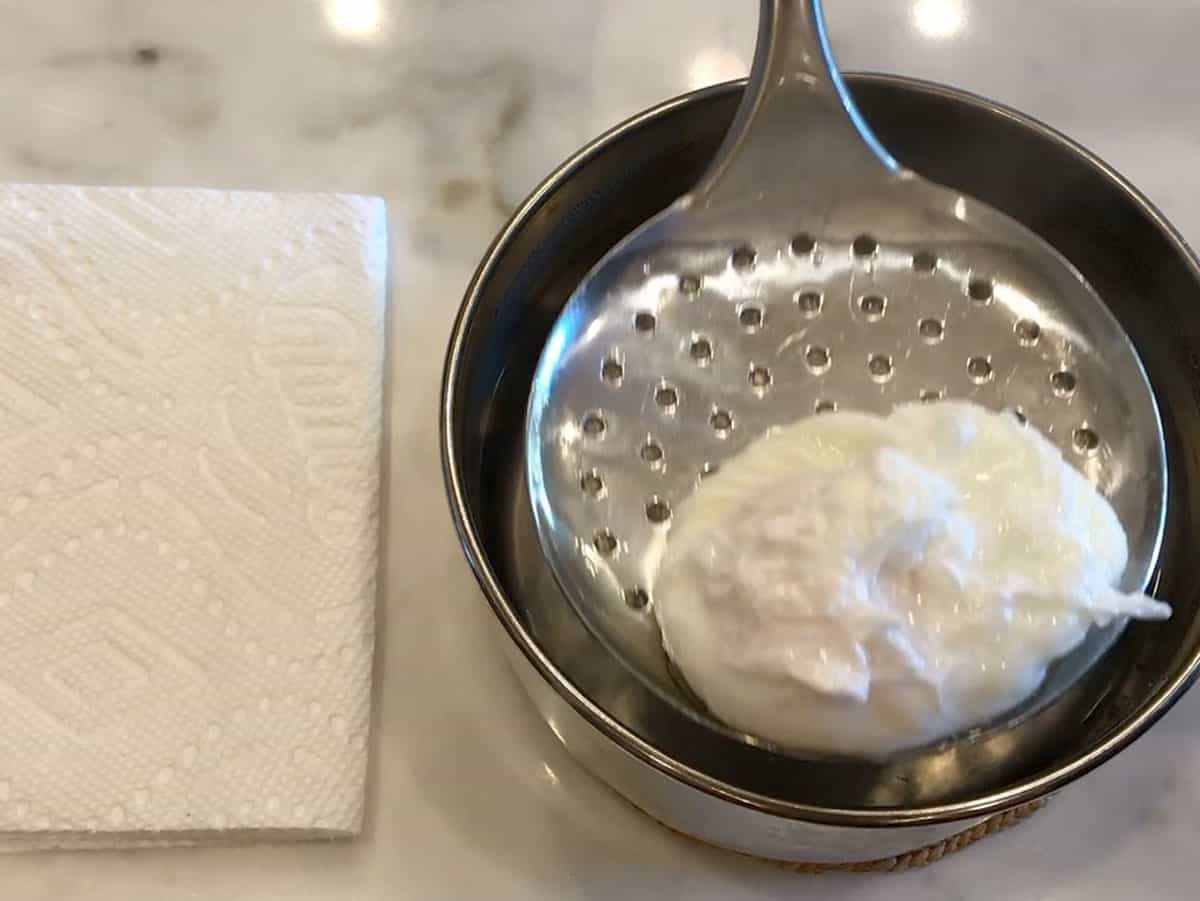
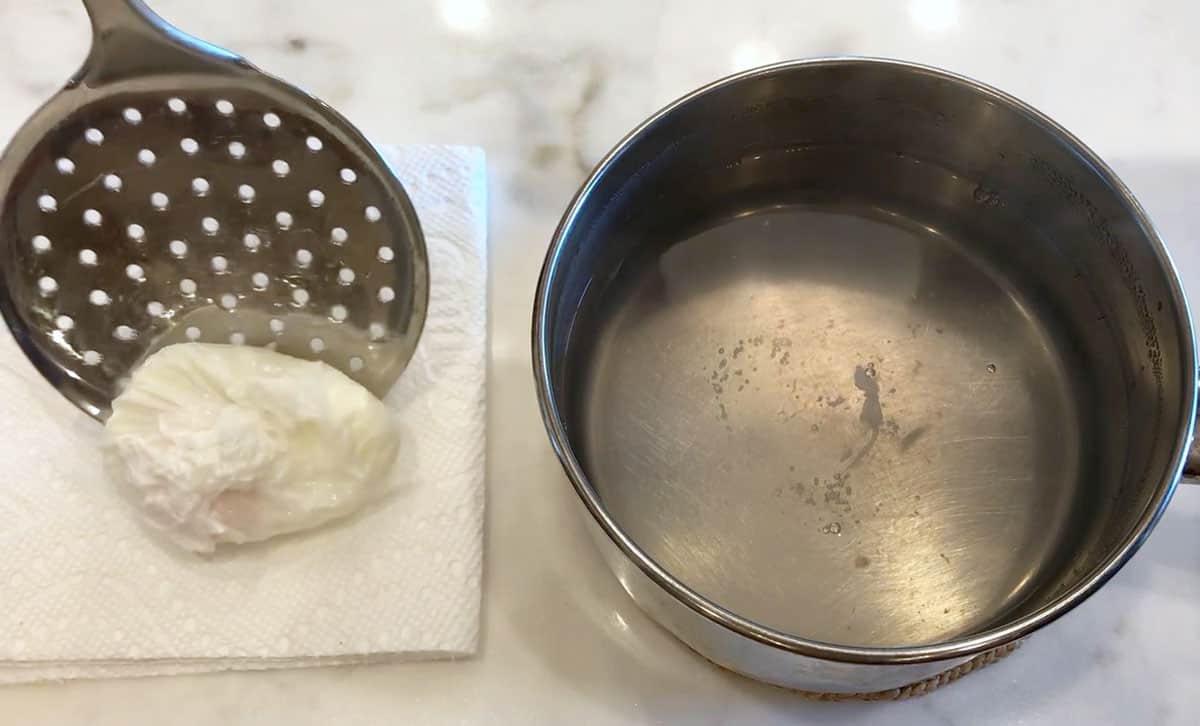
Season with salt and pepper, and serve.
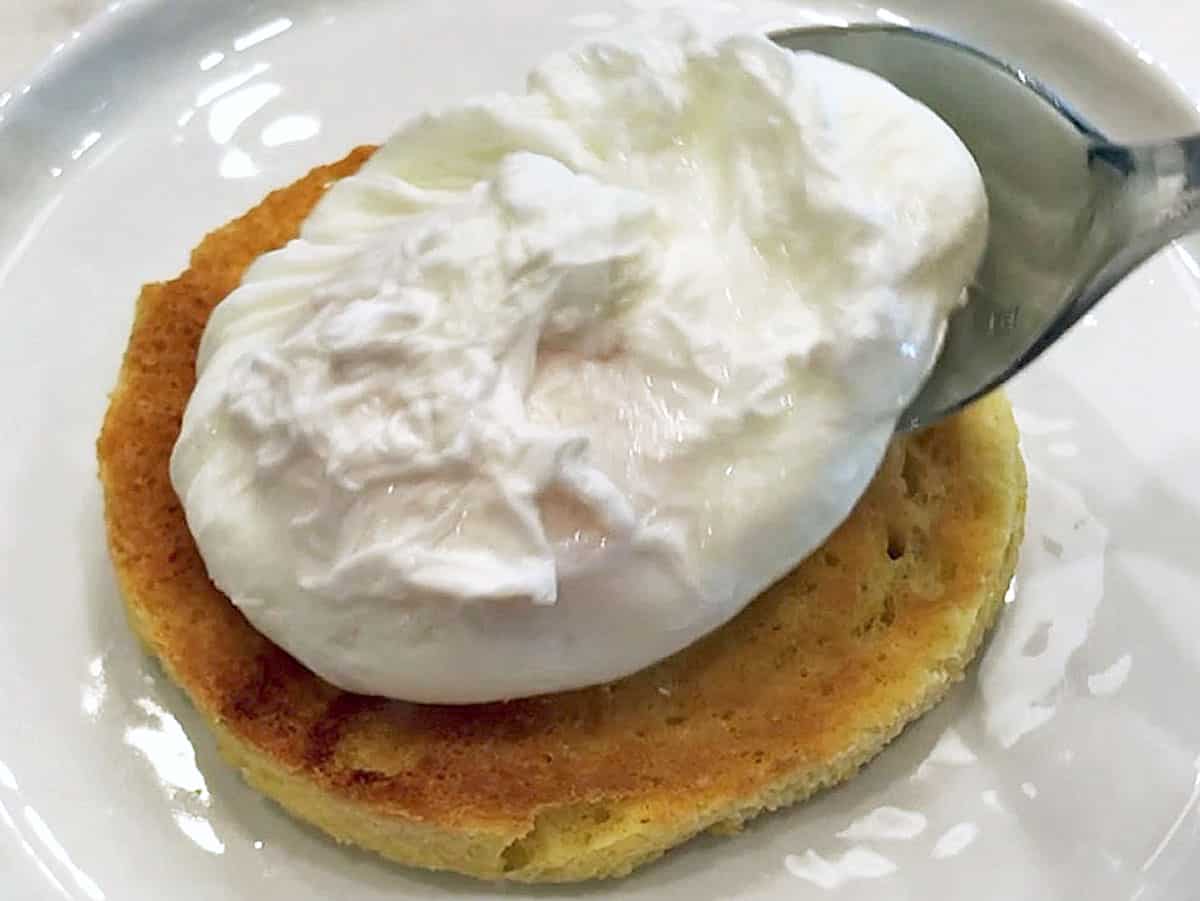
My Daughter's Feedback
My twenty-something daughter texted me a few days ago, sharing her positive experience making these eggs:
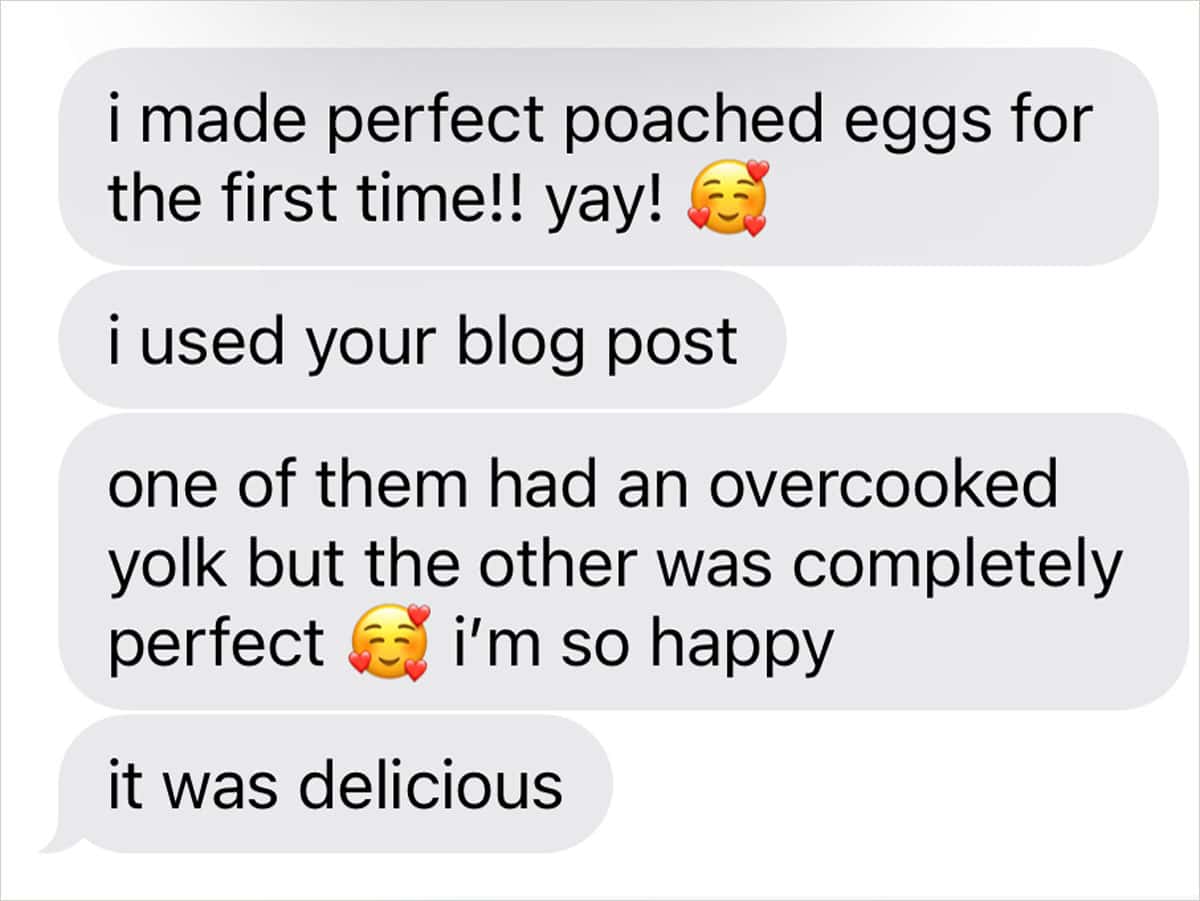
Here are the beautiful photos she attached:
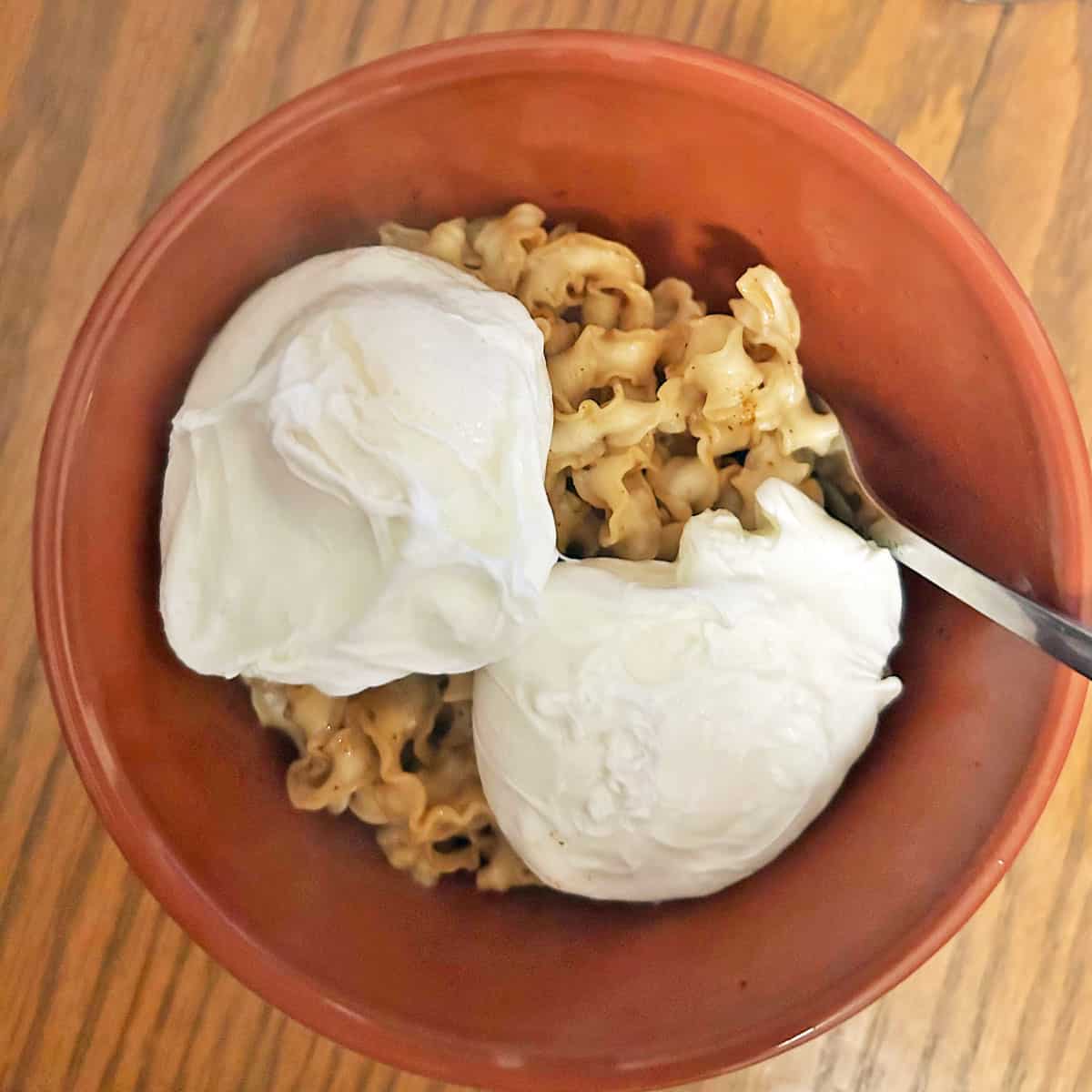
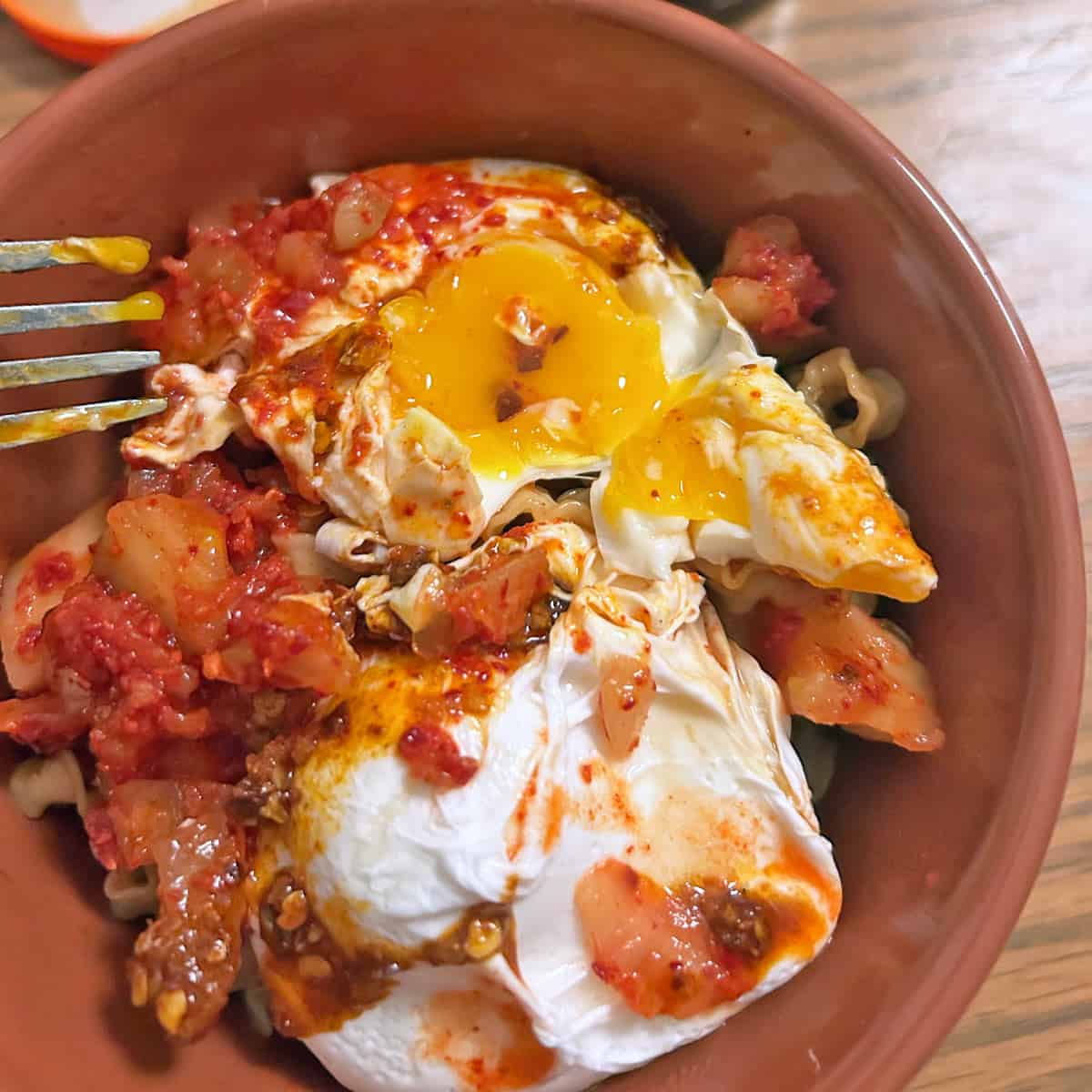
Using a Microwave Poacher
I own a microwave egg poacher, but I rarely use it, because it almost always produces firm yolks.
To use it, you crack the eggs into the cavities, cover them, and microwave them for 40-60 seconds (assuming your microwave is 1200 watts, like mine).
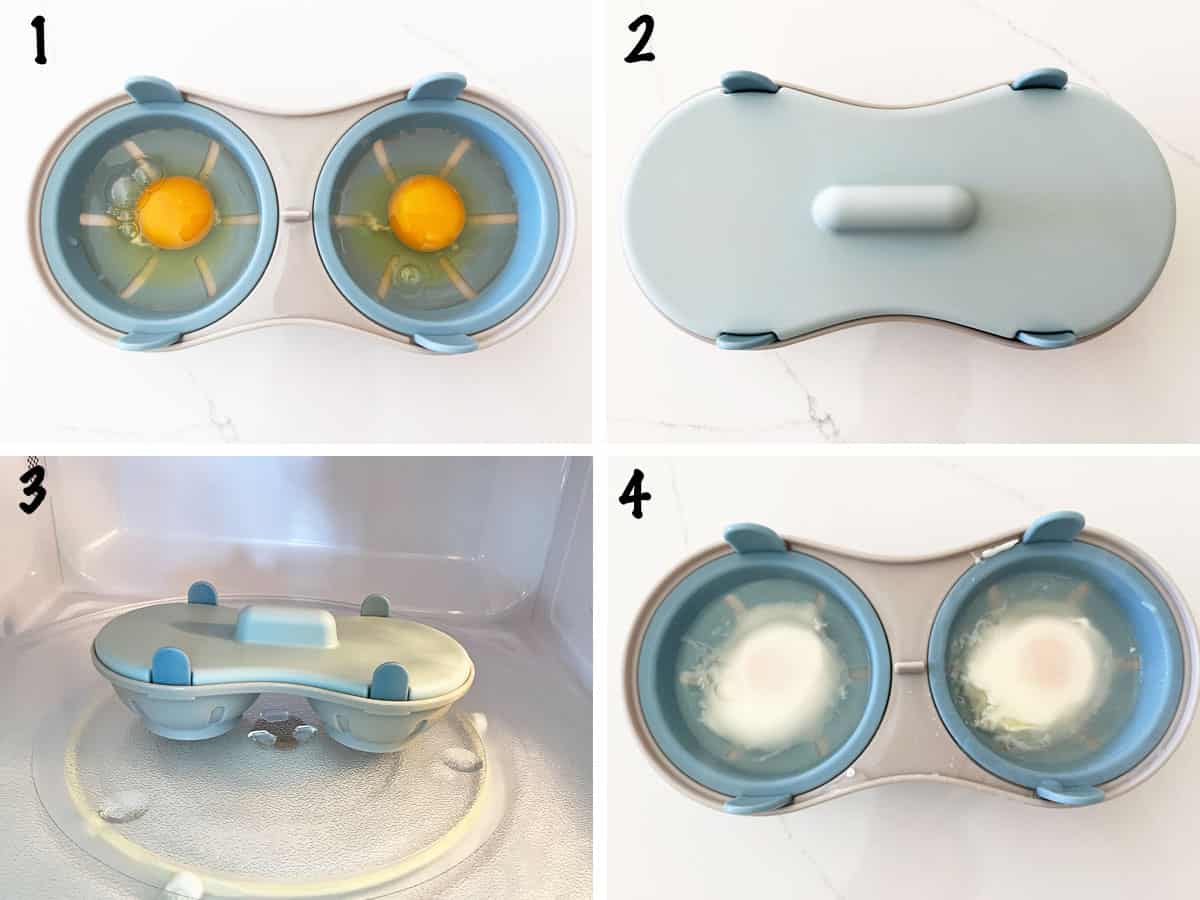
The problem: 40 seconds produced undercooked eggs, while 50 seconds produced overcooked eggs with nearly firm yolks, as shown in the photo below:
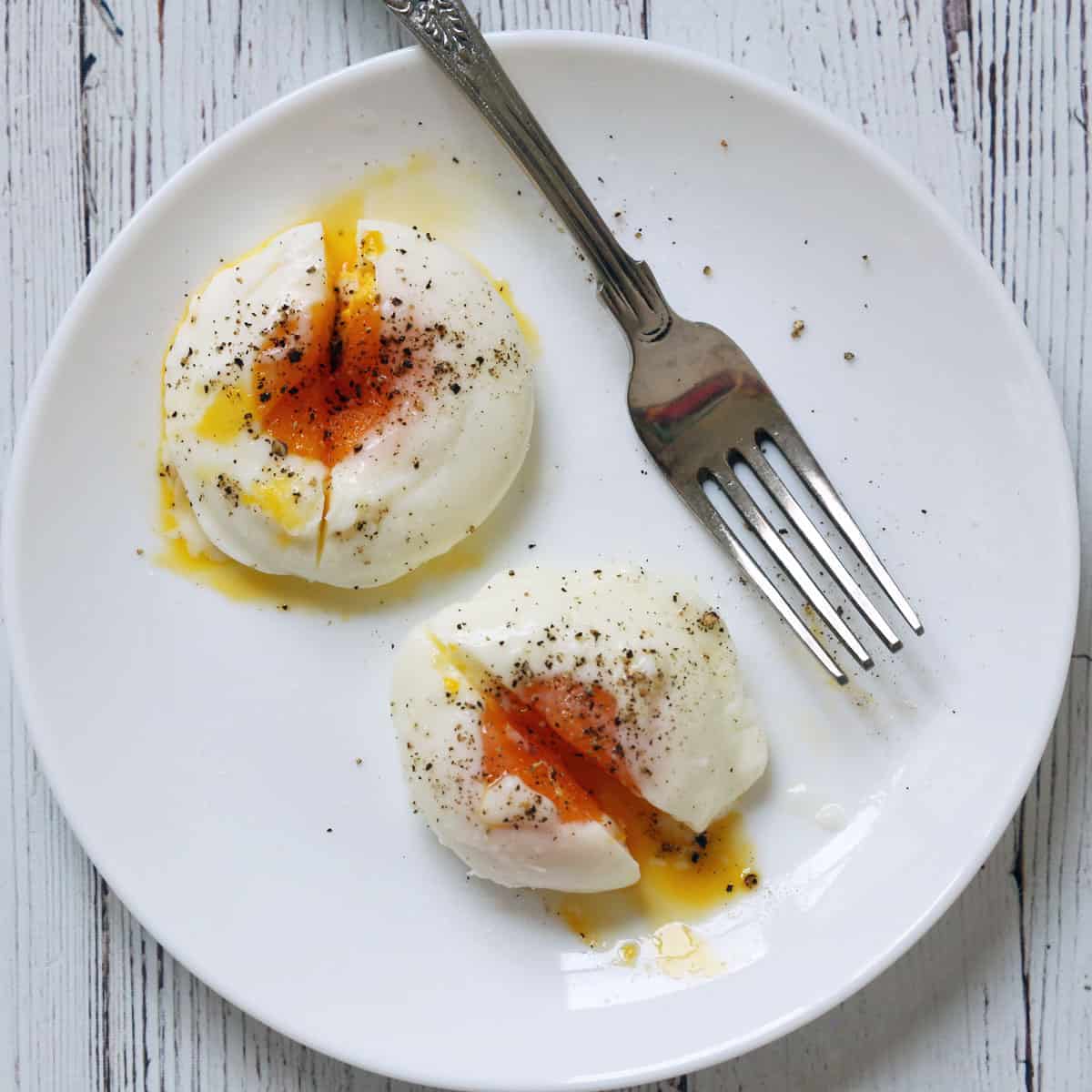
Using a Stovetop Egg Poacher
A stovetop egg poacher works better than a microwave one, although you will still need to experiment with how long to poach the eggs. Unlike my method of poaching the eggs in hot water after turning the heat off, here, you crack them into the cavities, cover them, and poach them in gently boiling water:
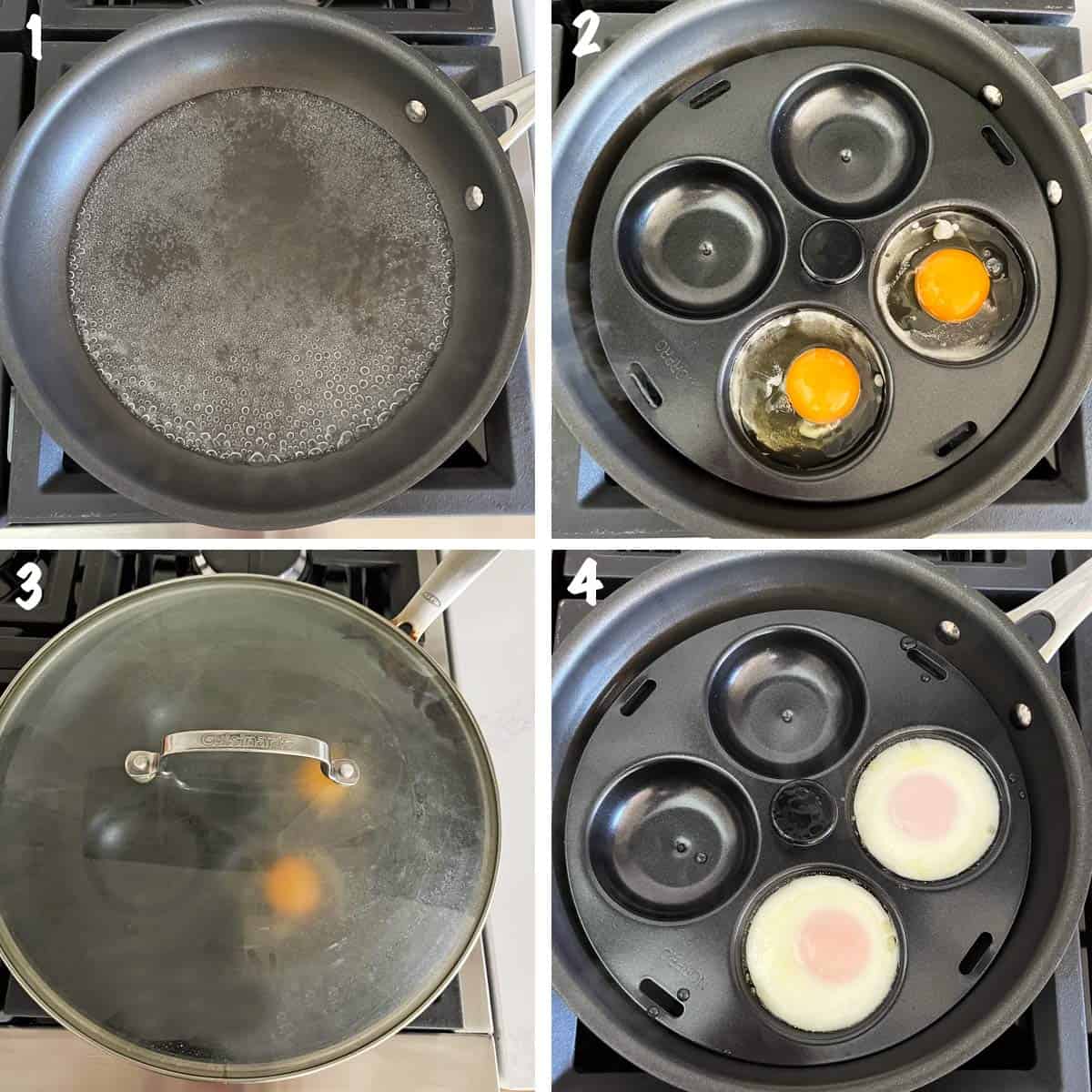
So, they only need to be poached for three minutes for runny yolks:
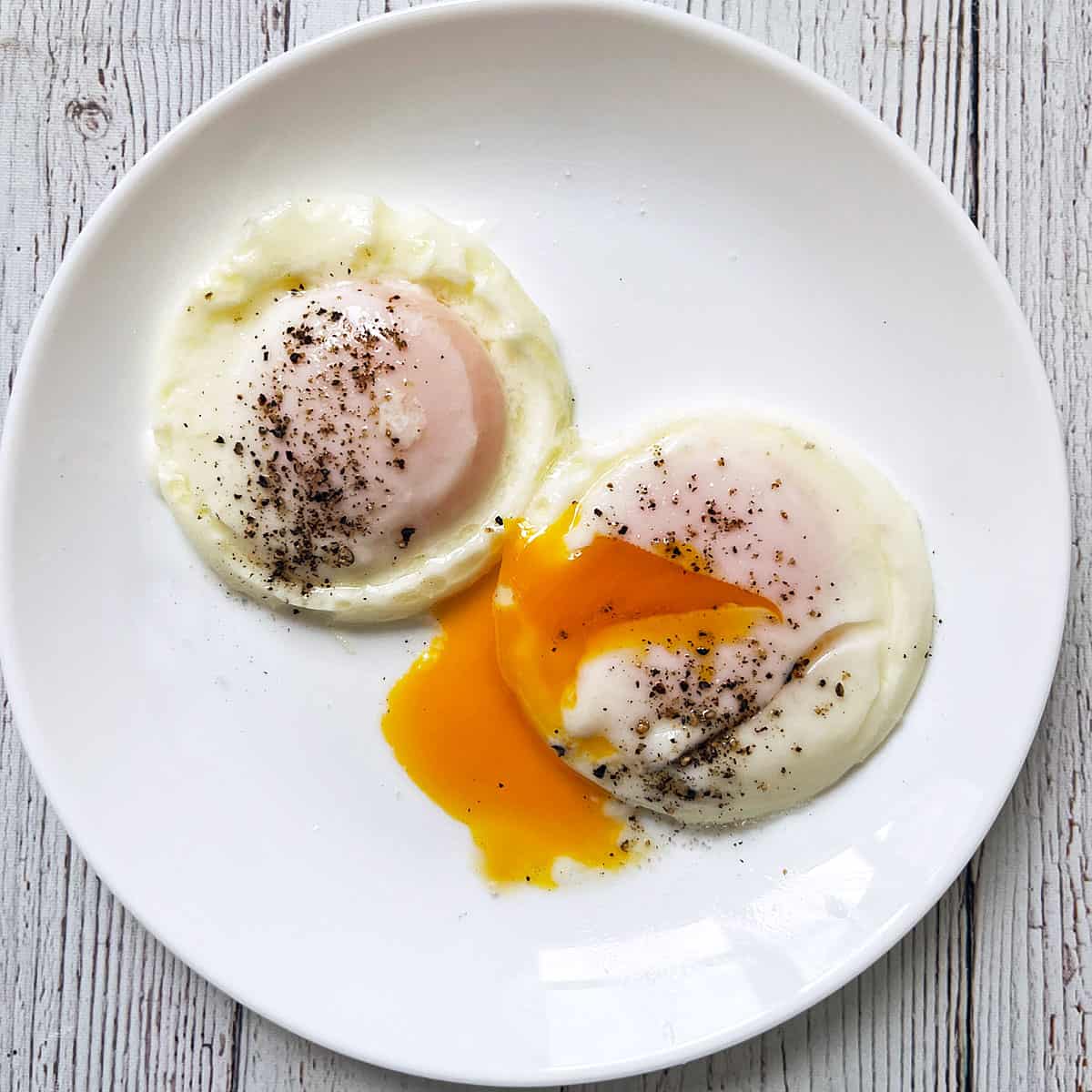
Or four minutes for jammy yolks:
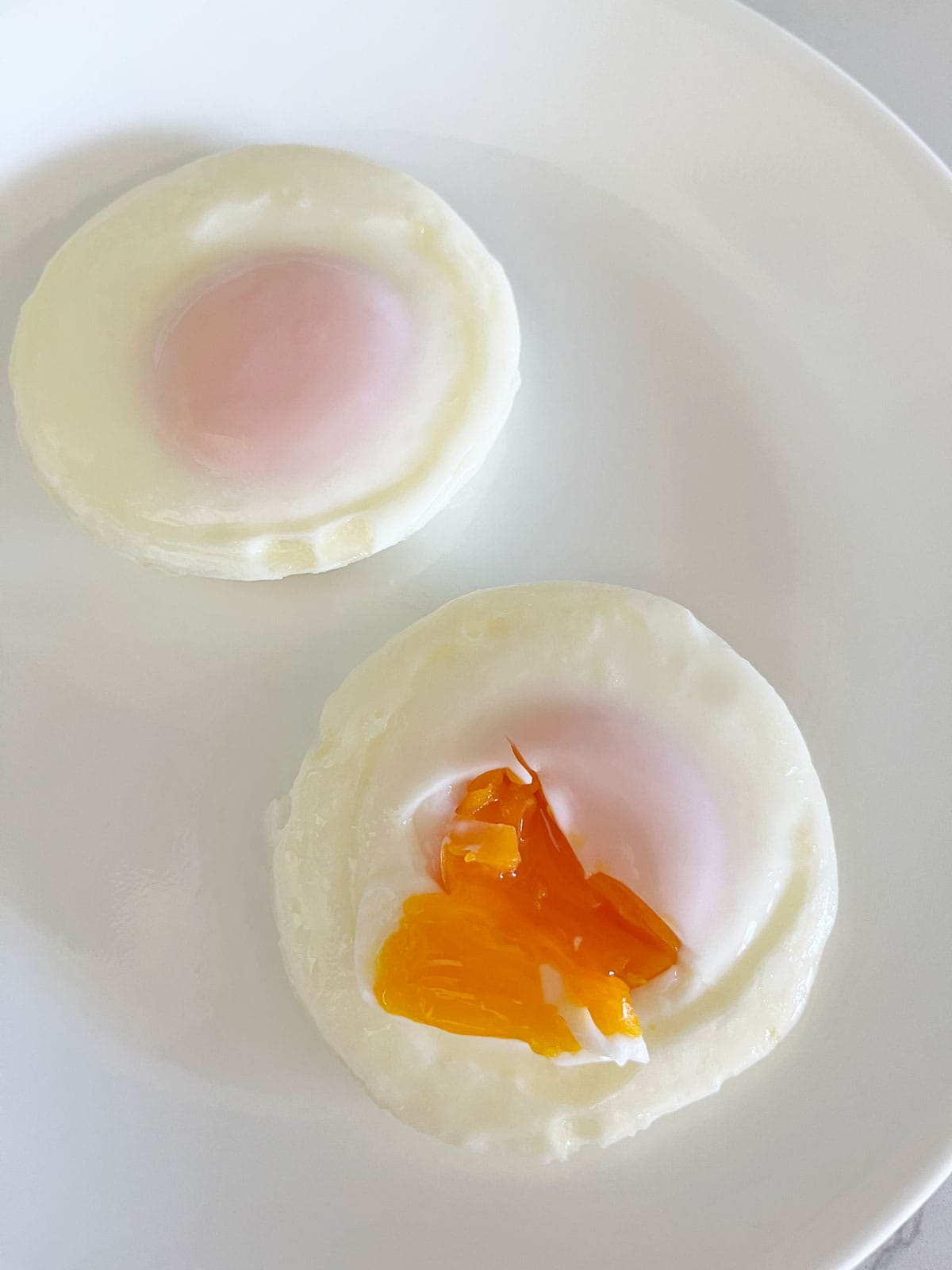
Expert Tip
Adding vinegar to the water helps the egg whites congeal. The faster the egg whites cook, the less risk the egg will disperse in the water, leaving you with an unappetizing and messy boiled scramble.
You add just a small amount of vinegar, so you don't actually taste it. Regardless, using mild-tasting vinegar, such as rice or champagne vinegar, is a good idea. Having said that, I've used plain white vinegar plenty of times, and it was just fine.
Recipe FAQs
Poaching is cooking food in a hot liquid kept just below the boiling point. In the case of eggs, the idea is also to cook the egg out of its shell, and that's the challenge. You want the egg to end up round and pretty, with perfectly cooked whites and a thick, liquid yolk.
Not long! It all happens quite fast. After placing the egg in the hot water, turn the heat off and leave the egg in the hot water for just five minutes. That's the time it takes for the egg white to become fully cooked while the yolk remains runny.
Any longer than that, and the yolk will not be runny anymore. Needless to say, that would be hugely disappointing!
Five minutes should produce the yolks you see in the photo below - runny but jammy and thick. That's exactly how I like them. If you like runnier yolks, keep the eggs in the hot water for just four minutes.
Not necessarily. As mentioned above, I own two poachers. One that you lower into a saucepan filled with hot water and a silicone one that you use in the microwave.
The microwave one goes quickly from undercooked eggs to firm yolks, which is not what we're after here! The stovetop one is also tricky - three minutes produced slightly undercooked eggs, while four minutes produced slightly overcooked ones.
So, both gadgets will require experimentation to get it just right. I’m confident both can work once you figure out your own settings in your own kitchen. But in a way, poaching an egg the old-fashioned way is easier. It’s been giving me consistent results for at least ten years now, and I’ve lived in four different places during those years.
Serving Suggestions
I usually serve poached eggs on a toasted keto English muffin (as shown in the photo below) or toasted and buttered almond flour bread.
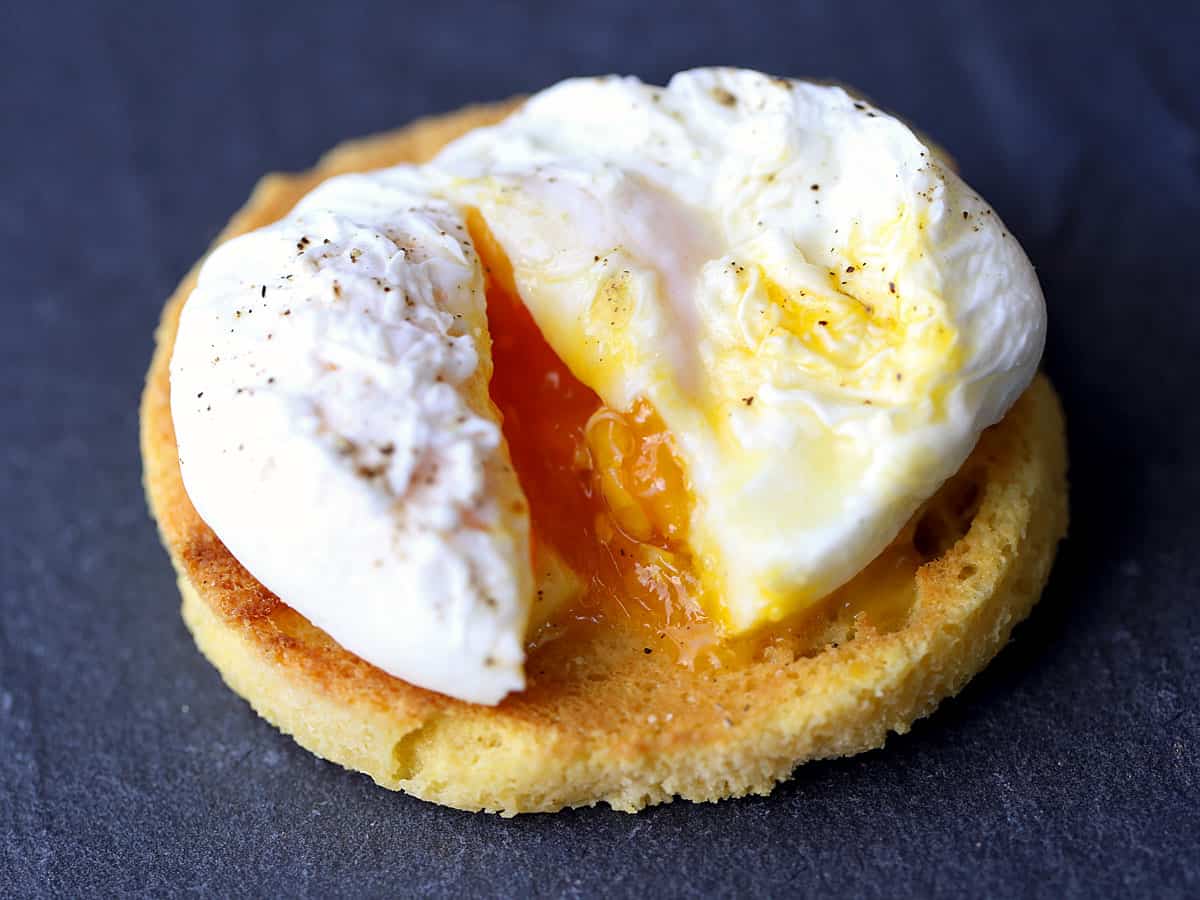
They are also excellent with hollandaise sauce in this keto eggs benedict recipe. Sometimes, I use them to top sauteed kale or sauteed spinach, turning the vegetable into a complete meal.
In the photo below, I served them with microwave broccoli for an easy meatless lunch:
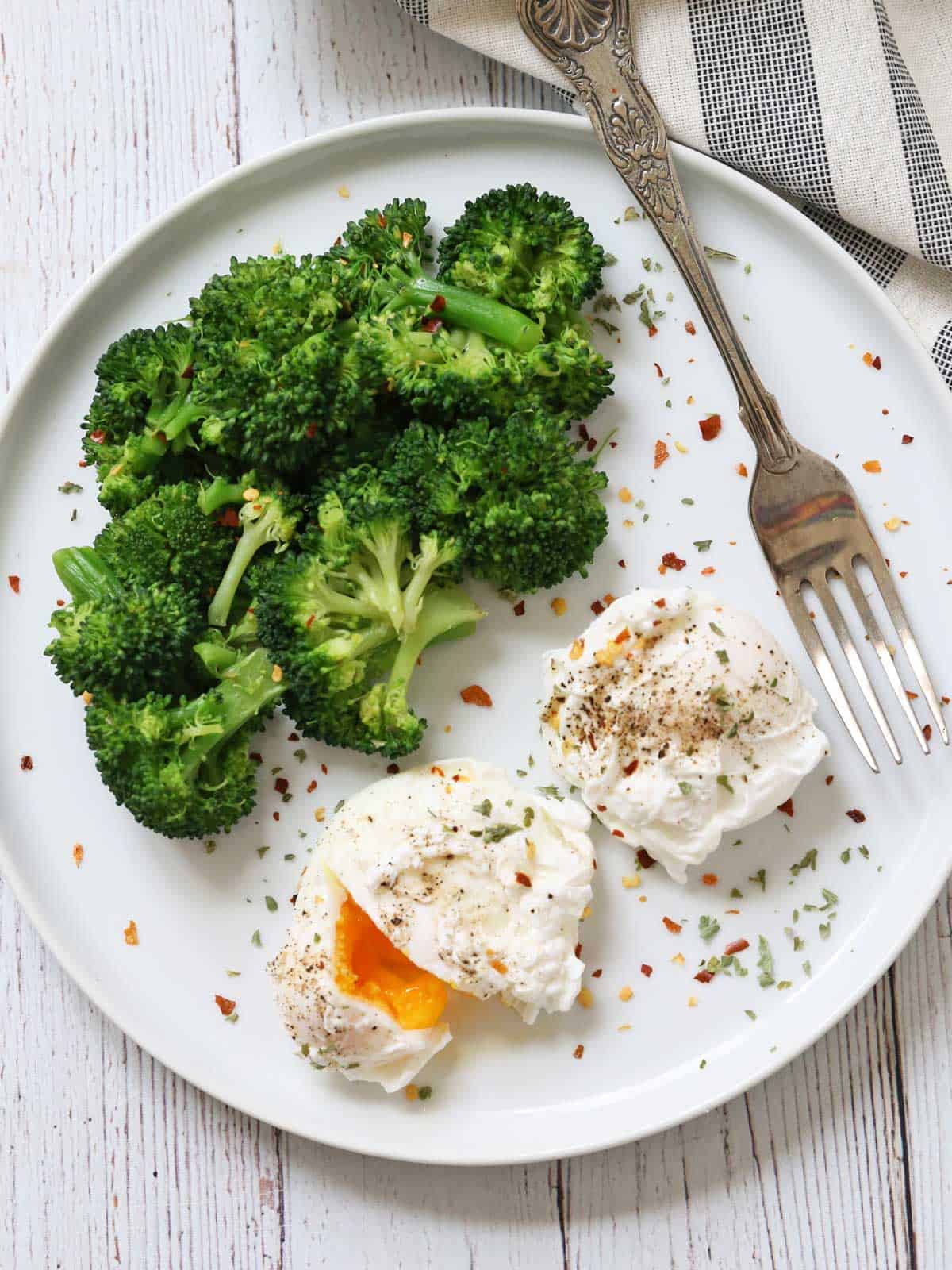
When you serve the eggs on any type of bread, make sure to drain them for a few seconds on a paper towel to prevent soggy bread.
Storing Leftovers
While you can find tips online for storing and reheating poached eggs, I don't like storing them. I only make as many as my family will eat right away.
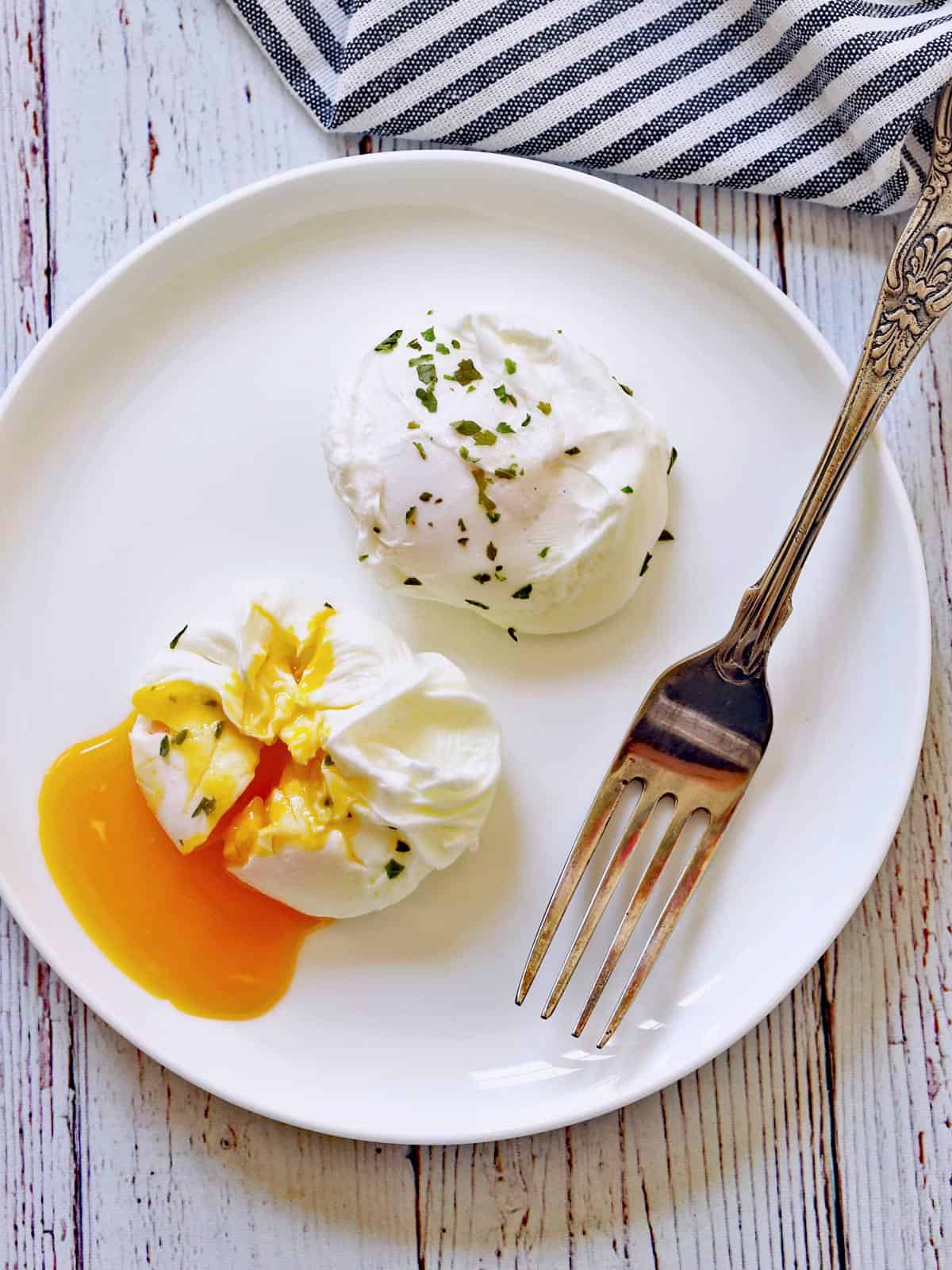
More Egg Recipes
Foodie Newsletter
I send out a weekly newsletter with a recipe and tips. Want these recipes in your inbox? Subscribe today! You can unsubscribe at any time.
Recipe Card
Easy Poached Eggs
Ingredients
- 1 tablespoon vinegar for the cooking water
- 1 large egg
- Pinch sea salt
- Pinch black pepper
Instructions
- Fill a small saucepan with water and bring it to a gentle boil. Meanwhile, break the egg into a small bowl. This will make it easier to slide the egg into the hot water while keeping its shape.
- When the water has reached a gentle boil, add the vinegar. The vinegar helps the egg white congeal.
- Use a hand whisk to vigorously whisk the water, then slide the egg into the whirlpool. This will help the egg hold its shape when it first enters the water. If making more than one egg, repeat the process (use a larger saucepan).
- If some of the egg white spreads out and does not curl around the yolk, gently push it in with a spoon.
- Cover the pot, turn the heat off, and set the timer for 5 minutes.
- After 5 minutes, use a slotted spoon to lift the egg out of the water and place it for a few seconds on a paper towel to drain.
- The egg white should be cooked yet creamy, and the yolk should appear soft. When cut open, it should be thick but gooey. Season the egg with salt and pepper, and enjoy!
Video
Notes
- The vinegar helps the egg whites congeal. The faster the egg whites cook, the less risk the whole egg will disperse in the water, leaving you with an unappetizing boiled scramble.
- You add just a small amount of vinegar, so you don't actually taste it. Regardless, using mild-tasting vinegar, such as rice or champagne vinegar, is a good idea. Having said that, I've used plain white vinegar plenty of times, and it was just fine.
- Five minutes should produce runny but jammy and thick yolks. That's exactly how I like them. If you like runnier yolks, keep the eggs in the hot water for just four minutes.
- When you serve the eggs on any type of bread, make sure to drain them for a few seconds on a paper towel to prevent soggy bread.
- While you can find tips online for storing and reheating poached eggs, I don't like storing them. I only make as many as my family will eat right away.
- The FDA recommends cooking eggs thoroughly.
Nutrition per Serving
Disclaimers
Cup measurements refer to the standard American cup, which is 240 milliliters. Most of my recipes are low-carb (or keto) and gluten-free, but some are not. Please verify that a recipe fits your needs before using it. Recommended and linked products are not guaranteed to be gluten-free. Nutrition info is approximate, and the carb count excludes non-nutritive sweeteners. Nutrition info may contain errors, so please verify it independently. Recipes may contain errors, so please use your common sense when following them. Please read these Terms of Use carefully before using any of my recipes.


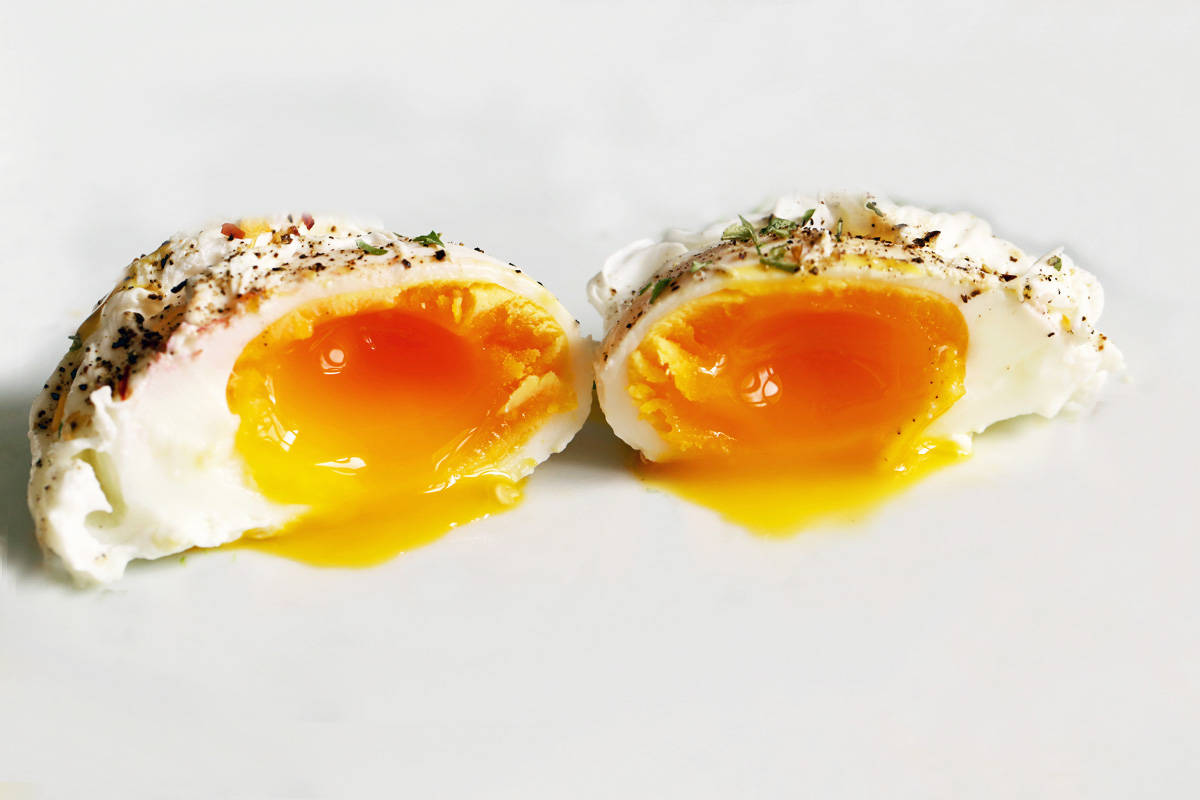
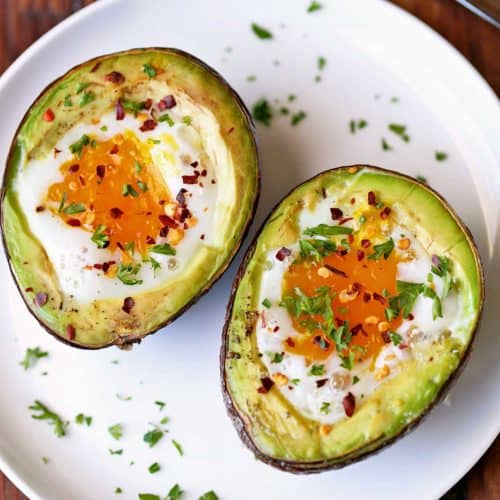
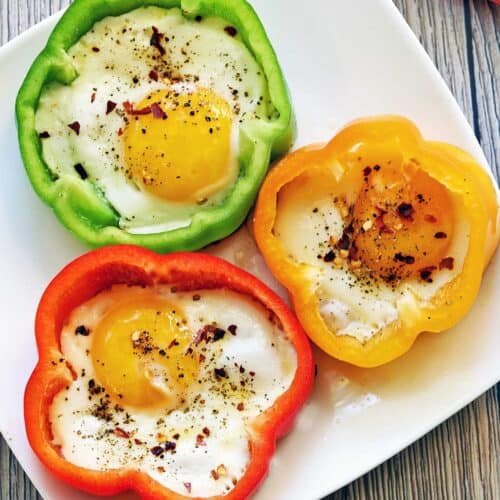
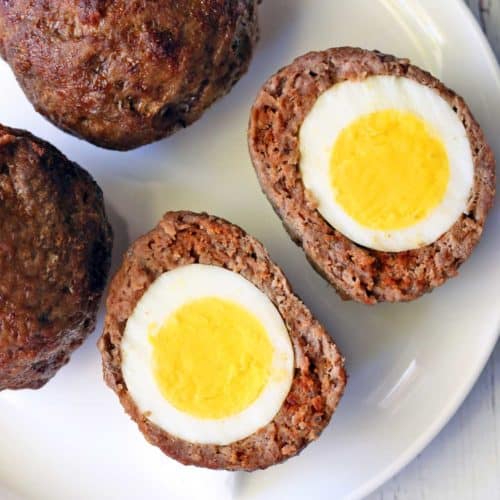
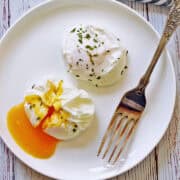
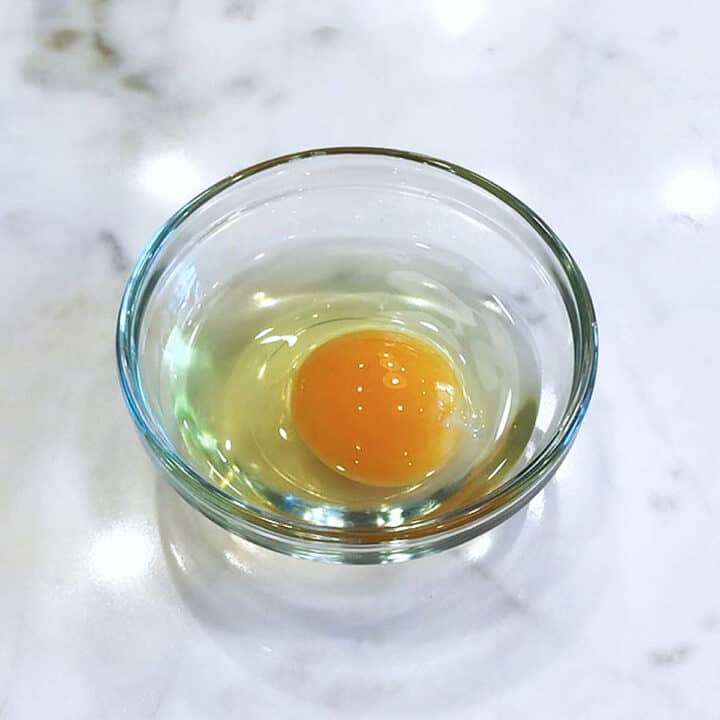
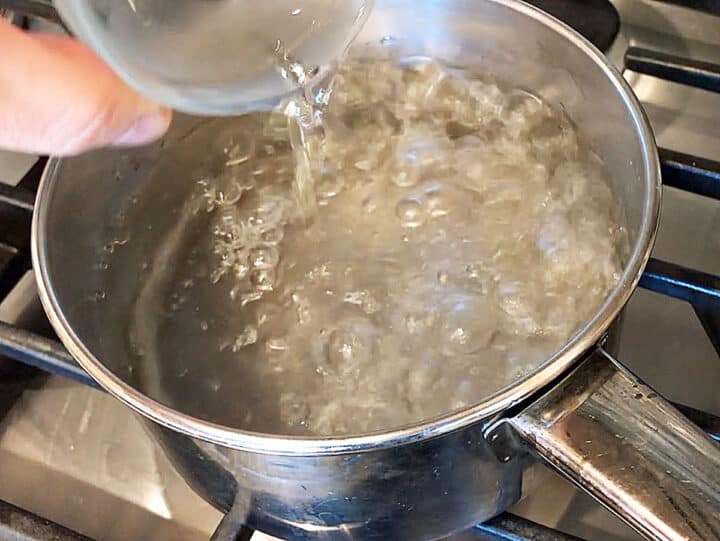
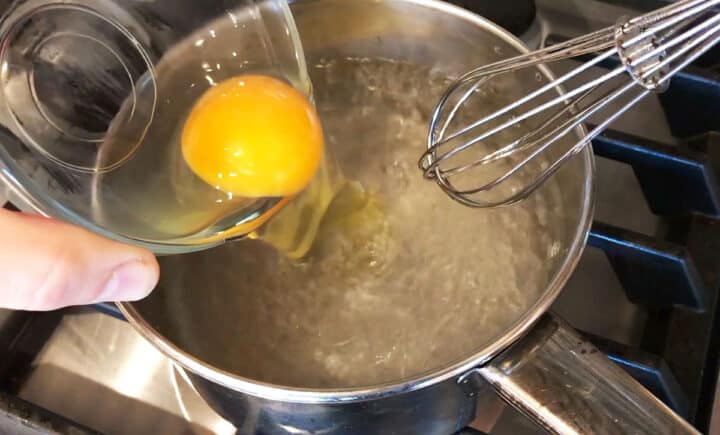
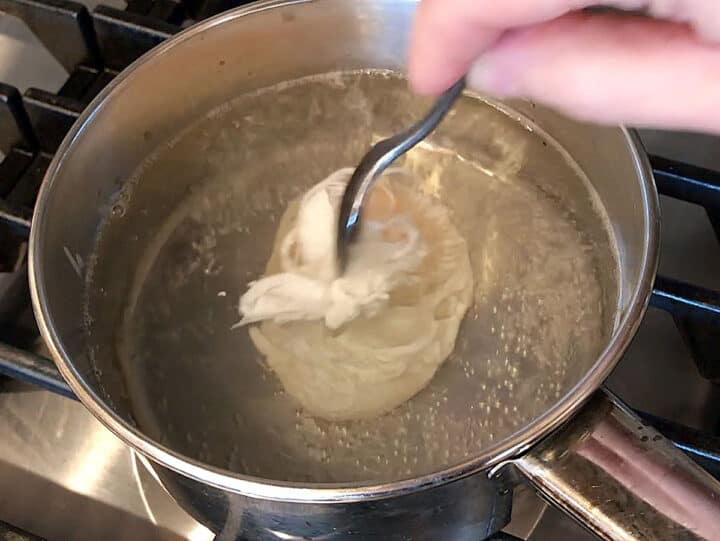
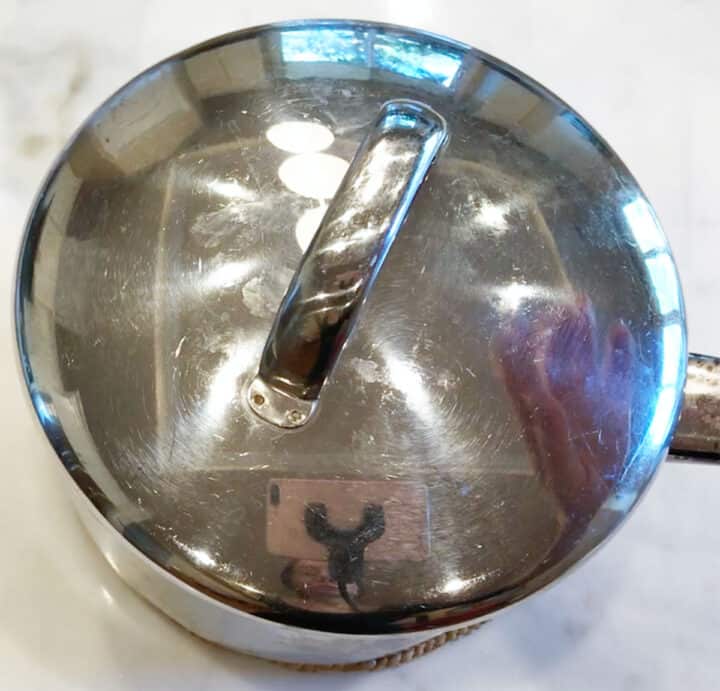
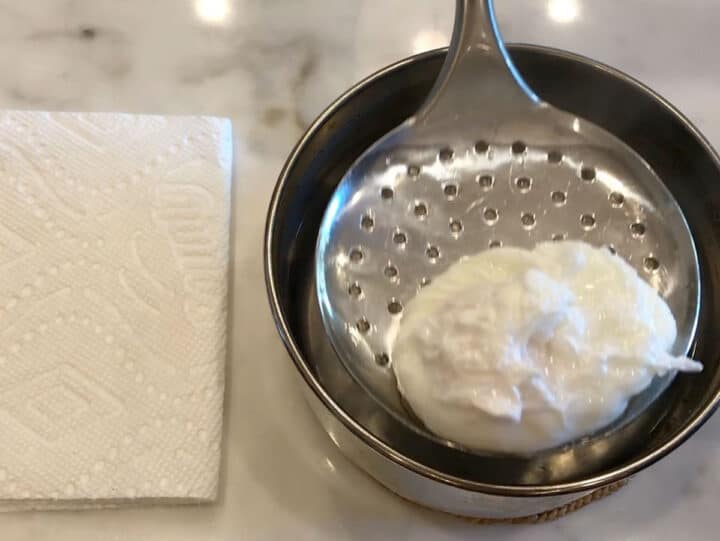
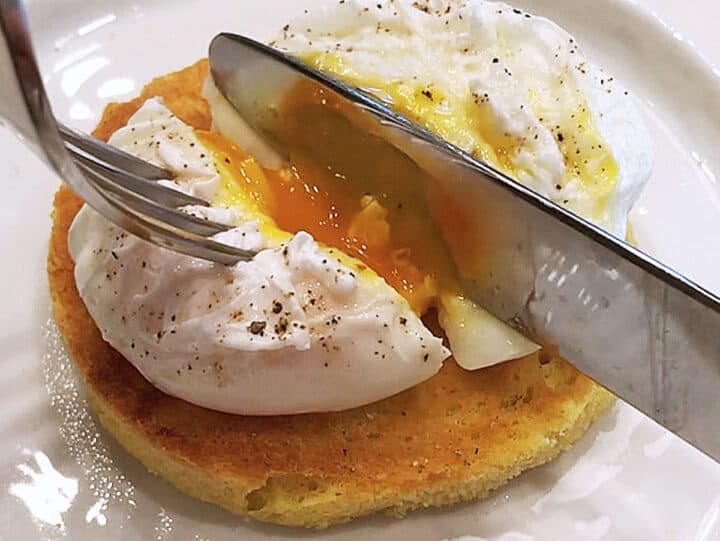
 Vered DeLeeuw, LL.M., CNC, has been following a low-carb real-food diet and blogging about it since 2011. She's a Certified Nutrition Coach (NASM-CNC), has taken courses at the Harvard School of Public Health, and has earned a Nutrition and Healthy Living Certificate from Cornell University. Her work has appeared in several major media outlets, including Healthline, HuffPost, Today, Women's Health, Shape, and Country Living.
Vered DeLeeuw, LL.M., CNC, has been following a low-carb real-food diet and blogging about it since 2011. She's a Certified Nutrition Coach (NASM-CNC), has taken courses at the Harvard School of Public Health, and has earned a Nutrition and Healthy Living Certificate from Cornell University. Her work has appeared in several major media outlets, including Healthline, HuffPost, Today, Women's Health, Shape, and Country Living. 
Haley
For the first time in my life I was able to make proper poached eggs! Thank you so much.
Vered DeLeeuw
Yay! I'm so glad to hear, Haley. Thanks for the review!
Beverly
My first one was unsuccessful. The second was much better because I used an egg ring that I use for muffin sandwiches.
Vered DeLeeuw
Thanks for the feedback, Beverly! Glad you found a way to make it work.